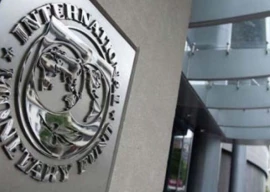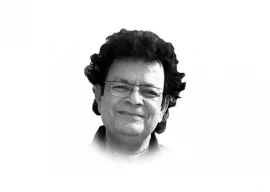
The New York Times, on August 29th, 1892 wrote on its front page “with the danger of cholera in question, it is plain to see that the United States would be better off if ignorant Russian Jews and Hungarians were denied refuge here. These people are offensive enough at best; under the present circumstances they are a positive menace to the health of this country. Even should they pass the quarantine officials, their mode of life when they settle down makes them always a source of danger. Cholera, it must be remembered, originates in the homes of human riffraff.”
If we change the time and date from 1892 to the third decade of the 21st century, and change a few other specifics about the country of origin of the refugees and the nature of the disease, this can well represent the views of many in the world today. From the leaders in the UK to the most recent former President of the US, from the current government in Hungary to the leadership of Tunisia, a similar sentiment is expressed by many. Pakistanis are not immune to it either. Soon after the devastating floods of the 2022 that led to the displacement of millions from the inner part of the provinces to larger cities, the concern about “riffraff” coming to towns, and along with them disease and crime was repeated by many “concerned” citizens. It does not even have to be about disease. Just ask around what many people think of Afghans in general and you are likely to hear deeply racist views including by those who claim to be progressive and inclusive. Incidents on the cricket field, or with a former head of the military in Paris, have allowed for a free flow of xenophobic sentiments painted with broad brush strokes about Afghans, and their whole society.
The New York Times article is also interesting because it gets the origin of cholera all wrong. By 1854, the bacterium causing cholera had been discovered in Florence by an Italian physician Filippo Pacini, who named it Vibrio (meaning agile or motile). The same year, John Snow had identified how the terrifying disease was spreading in London. Thirty years later, the famous German bacteriologist Robert Koch had also identified Vibrio cholerae during his work in Egypt and India. These discoveries were all quite well known by 1890, yet The New York Times chose to say that we must remember that cholera originates in the home of undesirables.
We suffer from a similar affliction today. We know (or rather should know) better but continue to put the blame of our ills on those we do not like. Much like the story from one hundred and thirty years ago, we tend to focus not on the cause and origin of the disease (or societal concerns) but on large groups (Russian Jews and Hungarians for them then; Afghans, Bengalis and other communities for us now).
It is indeed easy to be depressed about the eerie similarities between then and now. But the glass is also half full in many ways. I am still trying to figure out how many people, in 1892 found the vulgar racism displayed on the front page of The New York Times evil and morally reprehensible. Perhaps a few did — but given what was to unfold in the subsequent decades in the US, many were probably fine with such a description. Today, there are many more who find the actions of many leaders from the US to Hungary, UK to Tunisia, completely unconscionable. They are also more vocal and cannot be easily silenced. This does not mean that xenophobia no longer exists, it simply means that there is progress. Fortunately, the same is true in Pakistan. There are people who are calling out our own racism. We need more of that in all sectors of the society. Ultimately, we need both windows and mirrors in our society — windows to see how many in the world are speaking up against xenophobia, and mirrors to face our own demons.
Published in The Express Tribune, June 13th, 2023.
Like Opinion & Editorial on Facebook, follow @ETOpEd on Twitter to receive all updates on all our daily pieces.


































COMMENTS
Comments are moderated and generally will be posted if they are on-topic and not abusive.
For more information, please see our Comments FAQ